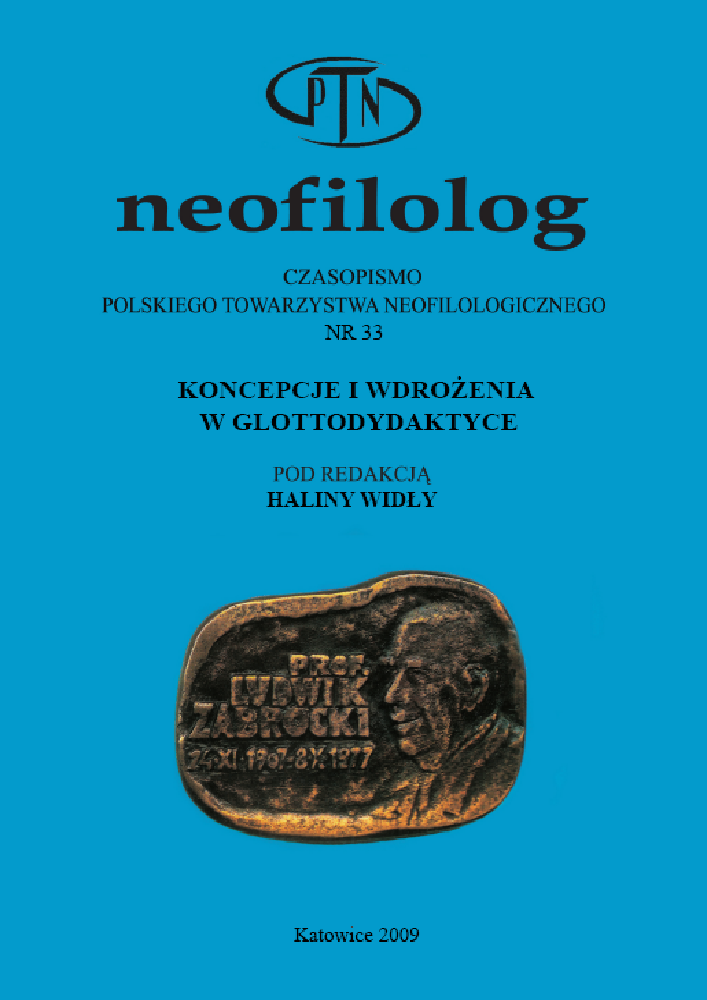Abstract
The article discusses kinds of verbal reports and their characteristic features. More specifically, it focuses on: a) the validity of particular types of verbal reports and the data these are likely to provide, b) a quite difficult distinction between introspection and retrospection in researching reading, and c) the characteristic features and limitations of think-aloud protocols (categorized as introspective verbal report), especially if used to investigate the concrete reading format of gapped-text.
Literaturhinweise
Afflerbach, P. P. 1990. « The influence of prior knowledge on expert readers’ main idea construction strategies ». Reading Research Quarterly 25 : 31 – 46.
Carver, R. 1992. « Effect of prediction activities, priori knowledge, and text type upon Mount comprehended: using rauding theory to critique schema theory research ». Reading Research Quarterly 27 : 164 – 174.
Cohen, A. D., Upton, T. A. 2007. « ‘I want to go back to the text’: response strategies on the reading subtest of the new TOEFL ». Language Testing 24 : 209 – 250.
Conrad, F., Blair, J., Tracy, E. 1999. « Verbal reports are data! A theoretical approach to cognitive interviews ». Proceedings of the Federal Committee on Statistical Methodology Research Conference, www.bls.gov/osmr/abstract/st/st990240.htm DW 19.07.2009.
Ericsson, K. A., Simon, H. A. 1993. Protocol analysis: Verbal reports as data. Cambridge : Bradford books/MIT Press.
Garner, R., Wagoner, S., Smith, T. 1983. « Externalizing question-answering strategies of good and poor comprehenders ». Reading Research Quarterly 18 : 439 – 447.
Hosenfeld, C. 1977. « A preliminary investigation of the reading strategies of successful and nonsuccessful second language learners ». System 5 : 110 – 123.
Jimenez, R. T., Garcia, G. E., Pearson, P. D. 1996. « The reading strategies of bilingual Latina/o students who are successful English readers: opportunities and obstacles ». Reading Research Quarterly 31 : 90 – 112.
Konieczna, A. 2009. The use of strategies in gapped-text reading task, referat konferencyjny, 3rd International May Conference on English Studies, Kraków [w druku].
Matsumoto, K. 1993. « Verbal report data and introspective methods in second language research: state of the art ». RELC Journal 24 : 32 – 60.
Olshavsky, J. E. 1976 – 1977. « Reading as problem solving: an investigation of strategies ». Reading Research Quarterly 12 : 654 – 674.
Pressley, M., Afflerbach, P. 1995. Verbal protocols of reading: the nature of constructively responsive reading. Hillsdale : Lawrence Erlbaum Associates.
Pressley, M., Hilden, K. 2004. « Verbal protocols of reading » (w) Literacy research methodologies (red. N. K. Duke i M. H. Mallette). New York : The Guilford Press.
Russo, J. E., Johnson, J. J., Stephens, D. L. 1989. « The validity of verbal protocols ». Memory and Cognition 17 : 759 – 769.
Lizenz
Copyright (c) 1970 Anna Konieczna

Dieses Werk steht unter der Lizenz Creative Commons Namensnennung - Keine Bearbeitungen 4.0 International.
Autoren:
Die Autoren der zur Veröffentlichung in der Zeitschrift Neofilolog angenommenen Texte sind verpflichtet, den Vertrag über die Erteilung einer kostenlosen Lizenz für die Werke mit der Verpflichtung zur Erteilung einer Sublizenz CC auszufüllen, zu unterzeichnen und an die Adresse der Redaktion zurückzusenden.
Gemäß Vertrag erteilen die Autoren auf die in der Zeitschrift Neofilolog veröffentlichten Texte der Adam-Mickiewicz-Universität in Poznań eine nicht exklusive und kostenlose Lizenz und erlauben die Verwendung der Sublizenz Creative Commons Attribution-NoDerivatives 4.0 International (CC BY-ND 4.0).
Die Autoren behalten das Recht zur weiteren freien Verfügung über das Werk.
Benutzer:
Interessierte Onlinebenutzer dürfen die seit 2017 veröffentlichten Werke unter folgenden Bedingungen nutzen:
- Anerkennung der Urheberschaft - die Verpflichtung, zusammen mit dem verbreiteten Werk Informationen über die Urheberschaft, den Titel, die Quelle (Links zum Originalwerk, DOI) und die Lizenz selbst bereitzustellen;
- ohne Schaffung abgeleiteter Werke - das Werk muss in seiner ursprünglichen Form erhalten bleiben, ohne Zustimmung des Autors dürfen keine Studien, beispielsweise Übersetzungen, verbreitet werden.
Die Urheberrechte aller veröffentlichen Texte sind vorbehalten.
Sonstige:
Die Adam-Mickiewicz-Universität in Poznań behält das Recht auf die Zeitschrift als Gesamtheit (Layout, Grafik, Titel, Umschlagsprojekt, Logo usw.).
